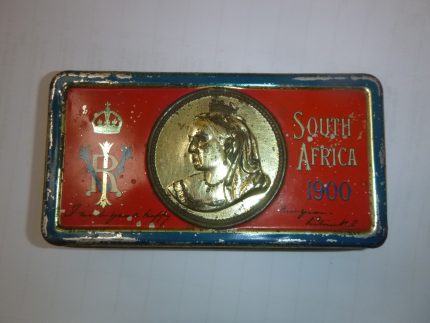Quakers were prohibited from getting academic degrees, so some of the traditional routes to respectable careers — medicine, law — were blocked off. The courses of study weren’t in keeping with Quaker religious standards anyway (“pagan” philosophy, “lascivious” poetry), and as Quakers increasingly engaged in wider English society and “worldly” activities like banking, commerce and retail in the 18th and 19th century, integrating their religious and ethical precepts into their business practices.
Chocolate was considered an “innocent trade,” as it was believed to have medicinal purposes and didn’t lead people into evil. Selling chocolate brought enjoyment and good health through the gifts of God’s nature. There was no moral corruption in making a nice cup of cocoa as there was in manufacturing weapons. Quakers went into the chocolate business when it was purely a beverage, developing it into the bar and candy empire that it is today. By the early 20th century, the three top chocolate and confectionary companies in England were Quaker owned and operated.
J. S. Fry & Sons was a Quaker family business. Founded in 1759, Fry’s bears numerous historic distinctions. It was the first company to use industrial equipment in the chocolate-making process, the first to mass-produce a chocolate bar and the inventor of the chocolate Easter egg.
Cadbury’s was founded by Quaker John Cadbury. John started selling coffee, tea and chocolate beverages in 1824 and built it into a successful company. It too was a family business, first John’s brother Benjamin joined him as a partner in 1848. They worked together 12 years. By the time Benjamin withdrew from the partnership in 1860, the company’s fortunes were in decline and John retired in 1861 after his wife’s death. John’s sons Richard and George took over and brought the business back from the brink to a whole new prosperity, expanding the product line from chocolate beverage to bars like the iconic Cadbury Dairy Milk which popularized milk chocolate.
Fry’s and Cadbury’s largest competitor, Rowntree’s, followed in the same Quaker footsteps. Founded by Henry Isaac Rowntree in 1862, the company was run according to Quaker principles of loving virtue. All the top three chocolatiers paid well and provided education, housing, recreational facilities and health care resources for their employees. Cadbury’s was the first company to establish the five-day work week.
So when in 1899 Queen Victoria turned to Cadbury’s, holders of the Royal Warrant as suppliers of chocolate products, to make a bar as a New Year’s present for the English troops fighting in the Boer War, the Queen’s command clashed at the most fundamental level with the pacifist principles of the “innocent trade.” The Cadbury brothers could not profit from war, but neither could they tell Queen Victoria to go suck a lemon.
To resolve their dilemma Richard and George Cadbury formed a temporary alliance with Joseph Fry and Joseph Rowntree: The three firms agreed to work together to fulfil the order. They would donate the chocolate free of charge and there would be no branding on either the chocolate or the tins.
Queen Victoria was not amused by all this. She wanted her soldiers and sailors to know that she was sending them the best British chocolate. In the face of the Royal ire, the firms took the sensible course of action. They caved in. Sort of. The tins remained unbranded but some of the chocolate and some of the interior wrapping sometimes did bear a company name.

The final product was a colorful tin painted red, gold and blue and embossed with a portrait of the Queen. It was inscribed “I wish you a Happy New Year Victoria R.I” and “South Africa 1900.”
One of those Queen Victoria South Africa tins has come up for auction. It’s in fine condition and still contains the original chocolate bar, foil wrapping and paper covering. Small differences between the tins produced by the three manufacturers identify this one as having been made by Cadbury’s.
The auction closes July 10th at noon EST, and online bidding is open. Only seven bids have been submitted so far, the top one is £84, enough to cover the reserve. The high estimate is just £120, so unless a bidding war breaks out (I think metaphoric wars are okay, Quaker-wise), this stale, faded, beige chocolate in a fabulous tin is something of a bargain.

So far, my understanding had actually been that particularly the Cadbury Dairy Milk bar had always been “highly controversial” and not at all “innocent”, but I suppose you need to be British for this :no:
It rather looks more like solidified cocoa powder now.
ll the top three chocolatiers paid well and provided education, housing, recreational facilities and health care resources for their employees. Cadbury’s was the first company to establish the five-day work week.
In 1862 no less.
It is interesting that Quakers became more involved in “wider English society”, at the very time we might have expected them to withdraw into their own purer values. Thus it made perfect sense when Rowntree’s became one of the first companies to have dedicated welfare officers, medicos, regular medical and dental examinations, and company public health campaigns.
Banking and commerce, on the other hand, might have been dirty, or exploitative.
Thanks for the link
Hels
https://melbourneblogger.blogspot.com/2016/11/quaker-chocolate-companies-workers.html
I wish other companies were as protective of workers as the three Quaker companies were/are.
I never expect to LOL in these articles but then it happens